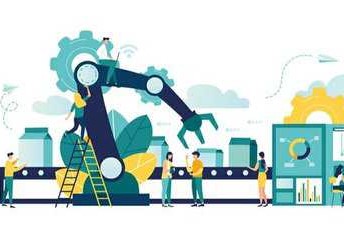Description
Industrial automation is the use of control systems, such as computers or robots, and information technologies for handling different processes and machineries in an industry to replace a human being. Industries implement automation to increase productivity and reduce costs related to employees, their benefits and other associated expenses, while increasing precision and flexibility.With the Industrial Revolution came mechanization, which brought cheaper and more plentiful goods. Generally, the mechanical processes in industries were faster and produced greater quantities of goods but still required skilled workers. Not only did machines require operators but when errors occurred, they would waste materials, cause production issues and even damage equipment.With the arrival of automation,control loops were added to machine operation. These can be open control loops that allow for human input or closed loops which are fully automated. Industrial control systems (ICS) allow for monitoring and control locally and remotely. With these increasingly advanced control mechanisms, industries can operate 24 hours a day. Productivity has increased, errors are reduced and quality is improved. However, automation does have some negative impact, including high initial costs, reduced worker employment and the elimination of some ethical human oversight. As automation continues to advance and gain popularity in new industries, it is possible to see these events increase.
Benefits
- Automation reduces costs. Employing robots is cheaper than employing human workers.
- It improves quality. Humans are great, but we're prone to error.
- It improves efficiency.
- It increases human safety.
- It makes manufacturing better.
